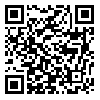

BibTeX | RIS | EndNote | Medlars | ProCite | Reference Manager | RefWorks
Send citation to:
URL: http://hcjournal.arums.ac.ir/article-1-546-en.html
Background & objectives: According to the prior studies, parenting style plays an important role in mental health of children. Therefore, identification of variables related to parenting styles is valuable. The present study aimed to investigate the role of attachment styles and emotional intelligent in predicting parenting style.
Methods: A correlational design was used to conduct the study. The study population consisted of parents who participated in health assessment plan of students in the city of Khalkhal during 2015-2016. The participants were 160 parents which were chosen through convenience sampling. For collecting data the Collins & Read’s Attachment Style Questionnaire, Baumrind’s Emotional Intelligence Questionnaire and Parenting Styles Questionnaire were used. Data were analyzed through Software SPSS v.18 using Pearson Correlation and multiple regressions.
Results: Data analysis showed that permissive parenting has significance correlation with ambivalent attachment, problem-solving, independence, reality testing and impulse control (p<0.05). On the other hand, authoritarian parenting style had correlation with emotional self-awareness (p<0.02). In addition, authoritative parenting had correlation with avoidant attachment style and with all emotional intelligence factors except assertiveness. The result of Multiple Regression revealed that avoidant attachment and secure attachment can predict the permissive parenting, ambivalent attachment, authoritative parenting, avoidant attachment (p<0.0001). Among the emotional intelligence factors of reality testing, problem-solving, social responsibility, permissive parenting, emotional self-awareness, optimism, authoritarian parenting, self-actualization and self-Regard can predict authoritative parenting style (p<0.0001).
Conclusions: Considering the role of attachment styles and emotional intelligence in predicting parenting style, it is proposed to pay more attention to this area in future educations and researches.
| Rights and permissions | |
 |
This work is licensed under a Creative Commons Attribution-NonCommercial 4.0 International License. |


